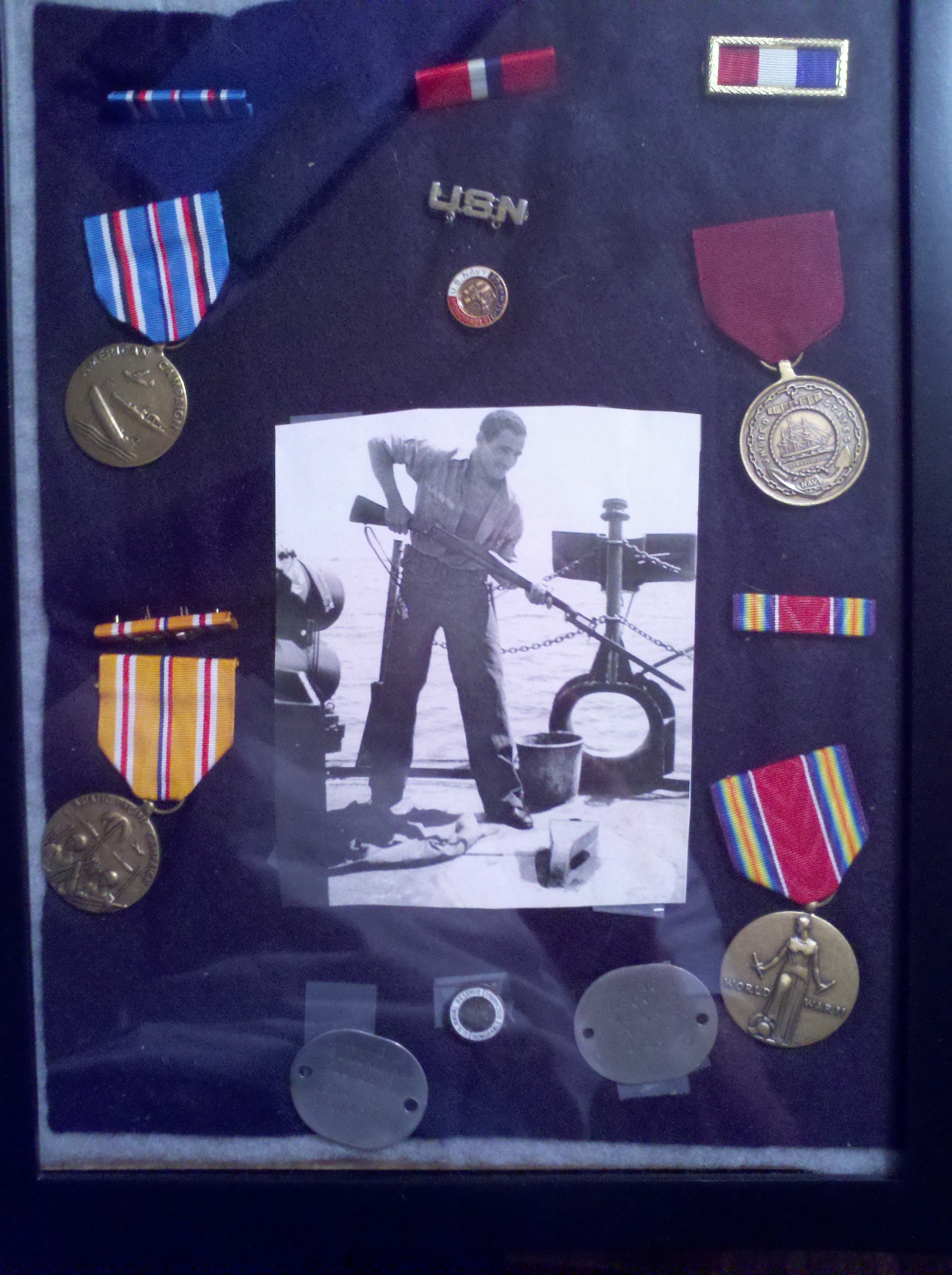My father wrote this moving tribute about my 93-year-old grandfather, Irving Blackman (whom I’ve blogged about before), who served on the USS Luce during WW II in the Pacific. I reproduce it here in its entirety.
Last man off the ship.
A tribute to Irving Blackman,
Written by Jaimie Blackman
10-3-11

USS Luce (Wikimedia)
USS Luce, DD522
Fate: Sunk by Kamikaze Aircraft off Okinawa May 4, 1945
Luce was laid down by Bethlehem Steel Co., Staten Island, N.Y., 24 August 1942; launched 6 March 1943
One of my earliest memories was dad’s war stories. I was too young to appreciate it. The ship that sank. The story how dad had to fight for a life jacket. Something out of a movie. My dad was eager to forget it. However it is part of my family’s DNA.
The story begins in 1942. Dad with a newborn at home, enlisted in U.S. Navy and was immediately assigned to the USS Luce, a brand new Destroyer built on Staten Island N.Y, of the same year.
For a peaceful mild manner man, like many young soldiers and sailors during World War II, dad served with distinction and bravery. But don’t call him a war hero. Modest to the core, he would deny it.
According to the account in Wikipedia, about 07:40, 4 May, Japanese suicide planes were intercepted by the combat air patrol in the vicinity of Luce. Two enemy planes avoided the interceptors and attacked her from the portside.
Luce shot down one, but the explosion from the bomb it carried caused a power failure. Unable to bring her guns to bear in time, she was struck in the after section by the second kamikaze. The port engine was knocked out, engineering spaces flooded, and the rudder jammed. At 08:14Luce took a heavy list to starboard and the order to abandon ship was passed. Moments later she slid beneath the surface in a violent explosion carrying 126 of her 312 officers and men with her.
Luce received five battle stars for World War II service.
My dad adds an important addendum to the story.
Shortly before the strike by the Japanese suicide planes, he was moved from the gunnery position on the top deck, to the lowest deck of the ship where he was loading the ammunition for the sailors who were busy shooting down Kamikaze Aircraft. The order to move my dad to the lowest deck, usually a more dangerous location, ironically saved his life.
As a result of the power failure, the communication system did not function, and the ship’s Captain was unaware that the handful of sailors who were on the lowest deck, were unable to hear his order to abandon ship.
Still, my dad had a premonition. He felt something in his gut. Somehow he knew the ship was sinking. This was a powerful feeling he could not deny.
At the risk of court martial, he left his general quarters, and began climbing up the stairs, opened the hatch, and what he saw was devastating. The top deck of the ship was already under water. People were screaming. There was fire. There was terror. He would later learn that many on the top deck, including the position my dad previously held, had perished.
Dad tried to return to the lower deck to tell the rest of his crew to leave. They wouldn’t listen. Seconds later he was already in the water. There was one problem. Dad had no life jacket. Struggling, moving, my dad was determined to survive. With a wife and a young infant at home, he was determined that this would not be the day to die. Not today.
He spotted his immediate officer in the water with not one life jacket but two. Dad asked him, begged him to give up one of this life jackets. The officer refused. Dad told him if he didn’t give it to him, he would either take him down with him, or if he survived would tell everyone what a coward he really was. The officer reluctantly gave in and gave dad one of his life jackets. After what seemed to be an eternity of treading water, a rescue ship was finally sent for the surviving sailors.
Quoted from a letter (pdf) mailed to dad in December 1945 from James Forrestal the Secretary of the Navy, sums it up nicely.
December 5, 1945
My Dear Mr. Blackman:
I have addressed this letter to reach you after all the formalities of your separation from active service are completed. I have done so because, without formality but as clearly as I know how to say it, I want the Navy’s pride in you, which it is my privilege to express, to reach into your civil life, and to remain with you always.
- You have served in the greatest navy in the world.
- You crushed two enemy fleets at once, receiving their surrenders only four months apart.
- You brought our land-based airpower within bombing range of the enemy and set our ground armies on the beachheads of final victory.
- You performed the multitude of tasks necessary to support these military operations.
No other Navy at any time has done so much. For your part in these achievements you deserve to be proud as long as you live. The Nation which you served at a time of crisis will remember you with gratitude. The best wishes for the navy go with you into civilian life. Good Luck.
Sincerely yours,
James Forrestal.
US. Secretary of the Navy
Today my dad is 93 and living in Florida with his wife Gertrude Oer Blackman. Dad has four children and 9 grandchildren.
My dad is part of a fading group of World War II veterans who served their country with distinction and bravery. He trusted his gut, and as a result was the last man off the ship.
My dad was a war hero, but don’t ask him, because he will deny it.
